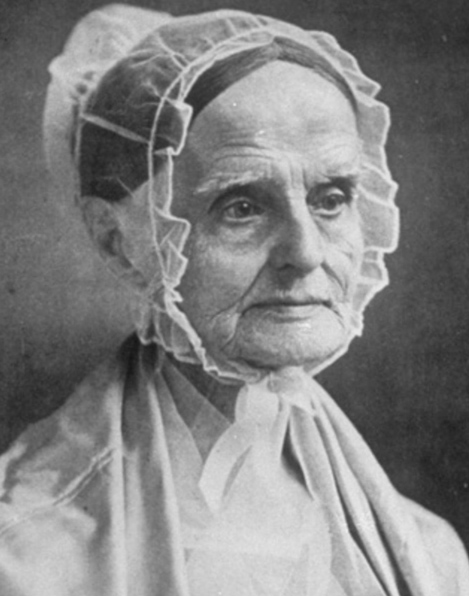The views expressed in our content reflect individual perspectives and do not represent the authoritative views of the Baha'i Faith.
The supreme cause for creating the world and all that is therein is for man to know God. – Baha’u’llah, Tablets of Baha’u’llah, p. 268.
From a Biblical perspective, it all began in the Garden of Eden with Adam and Eve eating the fruit of the Tree of Knowledge–not an apple, but the knowledge of good and evil. In another word: Nature; the physicality of existence as opposed to abstract reality.
For the most part, those who believe only in the physical creation, nature, call themselves materialists:
By materialists, whose belief with regard to Divinity hath been explained, is not meant philosophers in general, but rather that group of materialists of narrow vision who worship that which is sensed, who depend upon the five senses only, and whose criterion of knowledge is limited to that which can be perceived by the senses. – Abdu’l-Baha, Tablet to Auguste Forel, p. 7.
We began this series on philosophy mainly focusing from the 16th century onward with the Deistic philosophers, followed by the atheistic ones. Their words and writings, voiced by the beliefs of their hearts and minds, reveal deep insight and intelligence. That very intelligence, the Baha’i teachings say, proves that an unseen reality exists:
In like manner the mind proveth the existence of an unseen Reality that embraceth all beings, and that existeth and revealeth itself in all stages, the essence whereof is beyond the grasp of the mind. Thus the mineral world understandeth neither the nature nor the perfections of the vegetable world; the vegetable world understandeth not the nature of the animal world, neither the animal world the nature of the reality of man that discovereth and embraceth all things. – ibid, p. 9.
The reality which created all philosophy is, according to the Baha’i Writings, the rational soul. Here again, Abdu’l-Baha explains:
The foremost degree of comprehension in the world of nature is that of the rational soul. This power and comprehension is shared in common by all men, whether they be heedless or aware, wayward or faithful. In the creation of God, the rational soul of man encompasses and is distinguished above all other created things: It is by virtue of its nobility and distinction that it encompasses them all. Through the power of the rational soul, man can discover the realities of things, comprehend their properties, and penetrate the mysteries of existence. All the sciences, branches of learning, arts, inventions, institutions, undertakings, and discoveries have resulted from the comprehension of the rational soul. – Some Answered Questions, newly revised edition, p. 217.
That brings us to the point and purpose of philosophy itself. After all, what is philosophy? Opinions? Rules to live by? Morals and human values meant to be expressed in acceptance and action?
At its core all philosophy rests on some moral value. Hence, true philosophy should be no different than true religion, no different than the core and essence of all religions–the human spirit and its good actions. Good thoughts result in right actions, as the Buddha’s philosophy asserts—but humanity, the Baha’i teachings say, has lost touch with that spirit:
Alas! that humanity is completely submerged in imitations and unrealities notwithstanding the truth of divine religion has ever remained the same. Superstitions have obscured the fundamental reality, the world is darkened and the light of religion is not apparent. This darkness is conducive to differences and dissensions; rites and dogmas are many and various; therefore discord has arisen among the religious systems whereas religion is for the unification of mankind. True religion is the source of love and agreement amongst men, the cause of the development of praiseworthy qualities; but the people are holding to the counterfeit and imitation, negligent of the reality which unifies; so they are bereft and deprived of the radiance of religion. They follow superstitions inherited from their fathers and ancestors. – Abdu’l-Baha, Foundations of World Unity, p. 71.
This statement could easily apply today in the 21st century.
Manmade systems of philosophy and governance–socialism, capitalism and communism–have tried to supplant and even replace religion. Those philosophies, the Baha’i teachings tell us, will all eventually fail based on their inadequate and unequal moral grounds, and their lack of attention to the human spirit.

Lucretia Mott
Finally, lest we think that religion and philosophy belong only to the realm of the thoughts and morals of men, it is clear that the foundations of men owe their origin to women, their mothers and lifegivers. Even Christ, who had no physical father, was “born of woman.” Women are the upholders of love and caring to the world and the first educators of every child. We may owe a greater debt in this age to women like Tahirih in mid-19th century Persia, and Elizabeth Cady Stanton and Lucretia Mott at the Seneca Falls NY Convention of 1848, for bringing to the world’s attention the critical role of women to humane values and all progress in the world.
Philosophy depends on clear thinking and right action, and religion depends on the Word of God revealed in every age by prophets and sages.
















Comments
Sign in or create an account
Continue with Googleor